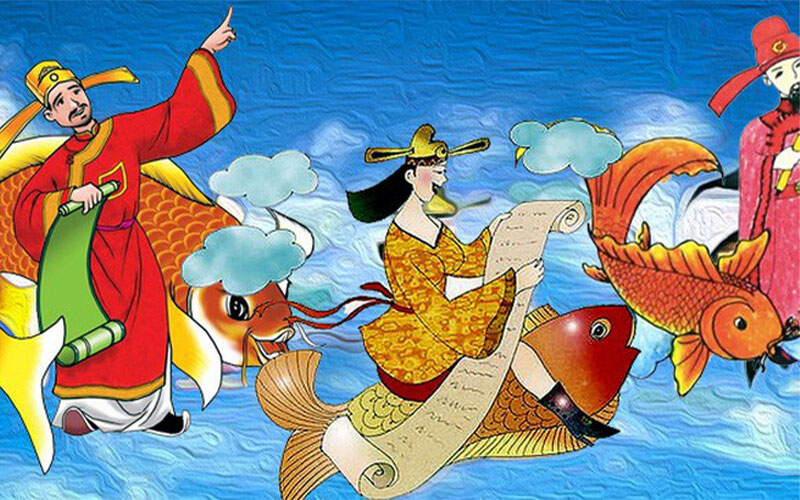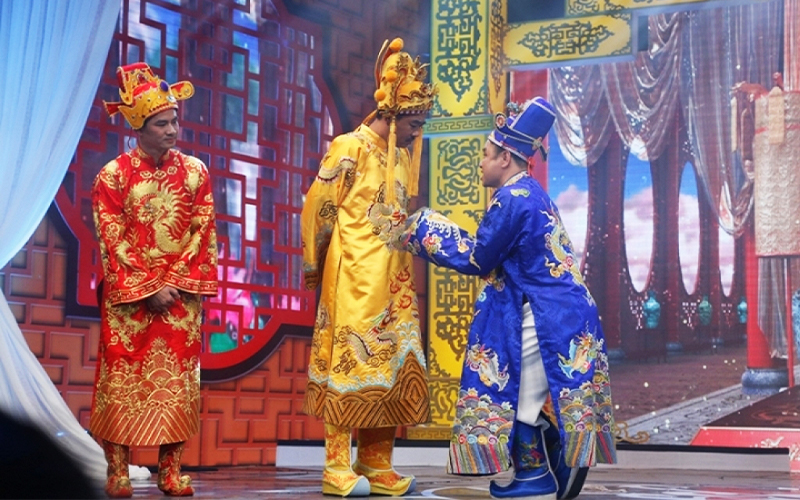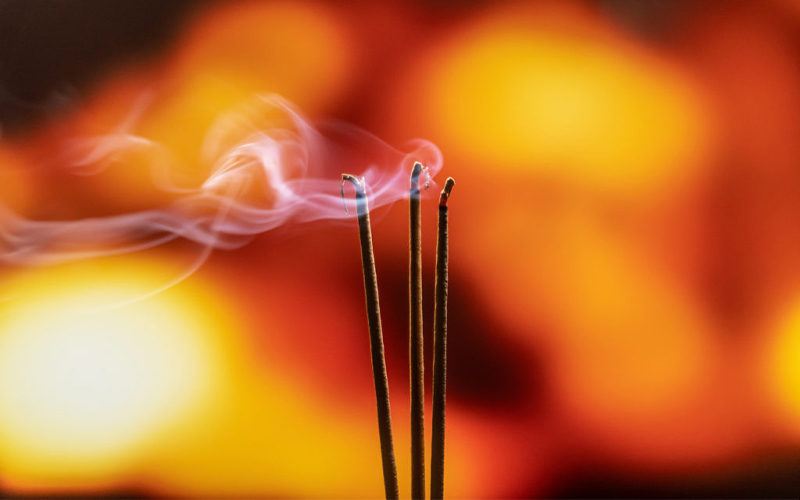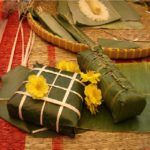As Tết approaches, the Vietnamese people not only focus on sprucing up their homes and tending to their businesses, but they also eagerly prepare for religious ceremonies and festivals. One such tradition is the ritual of cúng ông Công ông Táo, which holds great significance for households as the year comes to a close. Let’s delve into this unique custom and explore its importance in Vietnamese culture.
1. Cúng ông Công ông Táo – Worshipping the Kitchen Gods

The trio of Kitchen Gods, also known as the Stove Lords, consists of Thổ Công, who oversees the kitchen and cooking, Thổ Địa, responsible for land and real estate, and Thổ Kỳ, in charge of shopping and provisions. Annually, on the 23rd of the twelfth lunar month, these deities ascend to heaven to report on the family’s affairs to the Jade Emperor.
Customarily, from the morning of the 22nd until just before noon on the 23rd (as the gods depart in the afternoon), a grand ceremony is held to bid farewell to the three gods as they embark on their heavenly journey.
2. The Significance of Cúng ông Công ông Táo

This ritual holds profound meaning, as it is believed to attract wealth and blessings for the family, expressing gratitude to the gods for their protection throughout the year. Additionally, the ceremony serves as a plea to the gods to overlook any misdeeds or to speak favorably of the family to the Jade Emperor, thereby reducing any potential punishment.
3. Proper Incense Offering for Cúng ông Công ông Táo

Like other worship rituals, cúng ông Công ông Táo requires sincerity and reverence. However, the number of incense sticks burned should follow the odd-number rule, avoiding random quantities.
In Buddhist tradition, even numbers are associated with the living, while odd numbers pertain to the deceased. Hence, when offering incense to ancestors, deities, and other divine beings, it is customary to use odd numbers such as 3, 5, or 7.
Ideally, three incense sticks should be lit, representing the three realms: Heaven, Earth, and Humanity. This trio also symbolizes the devotee’s sincerity, adherence to Buddhist precepts, and steadfast devotion. Alternatively, five incense sticks can be used, corresponding to the five elements: metal, wood, water, fire, and earth.
It is also advisable to light the incense between 6 and 7 a.m. or in the evening, as these transitional periods between day and night are considered auspicious for spiritual practices and prayers.
In conclusion, as the year draws to a close, amidst the hustle and bustle of preparations, take time to honor these spiritual guardians. Ensure that you prepare adequately for cúng ông Công ông Táo to usher in a prosperous and smooth new year.
Essential Foods to Have in the Fridge Before the Lunar New Year
As the Tet holiday approaches, Điện máy Xanh has some helpful tips on what to stock up on and store in the refrigerator in preparation for the festivities. With most of the markets and supermarkets closing for the holiday, it is essential to have the necessary food on hand. Read on to find out what to keep in your refrigerator!














